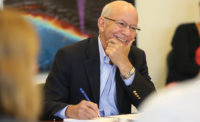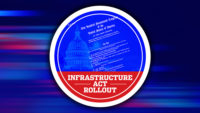Key senators agree that highway and transit funding will hit a critical juncture soon and faces longer-range financial needs. At a May 6 Finance Committee hearing, there was no agreement on specific short- or long-term remedies.
The Highway Trust Fund's flagging health is the immediate problem. The Congressional Budget Office projects that, by Sept. 30, the trust fund's highway-account balance will dwindle to $2 billion and its transit account will have $1 billion left, Joseph Kile, a CBO assistant director, testified.
Finance Chairman Ron Wyden (D-Ore.) says keeping the trust fund in the black through Dec. 30 will require a $10-billion infusion. Carrying the fix through Sept. 30, 2015, will cost $8 billion more.
Looking further into the future, Wyden says keeping the trust fund solvent for six years will cost $100 billion. But Wyden says he wants to "aim higher" and generate $1 trillion for infrastructure.
Hitting that goal would mean luring more private money.
"There are hundreds of billions of dollars in private capital sitting on the American sidelines," Wyden says. "Some of that can surely be invested in American infrastructure."
Standard & Poor's Ratings Service says there is a $200-billion annual gap between U.S. infrastructure needs and current revenue, says Jayan Dhru, senior managing director for corporate and infrastructure ratings. Dhru says if institutional investors double infrastructure stakes to 4% of their portfolios, it would mean $200 billion a year for world infrastructure, including $100 billion for U.S. projects. (S&P and ENR are units of McGraw Hill Financial.)
Finance's top Republican, Orrin Hatch (Utah), threw cold water on proposals from the White House and House Ways and Means Committee Chairman Dave Camp (R-Mich.) to shore up the trust fund with revenue from tax-code changes prompting firms to shift overseas income to the U.S. Hatch says that idea should be included in a broad tax-reform debate, "not as part of an ad hoc effort to pay for a highway bill."



